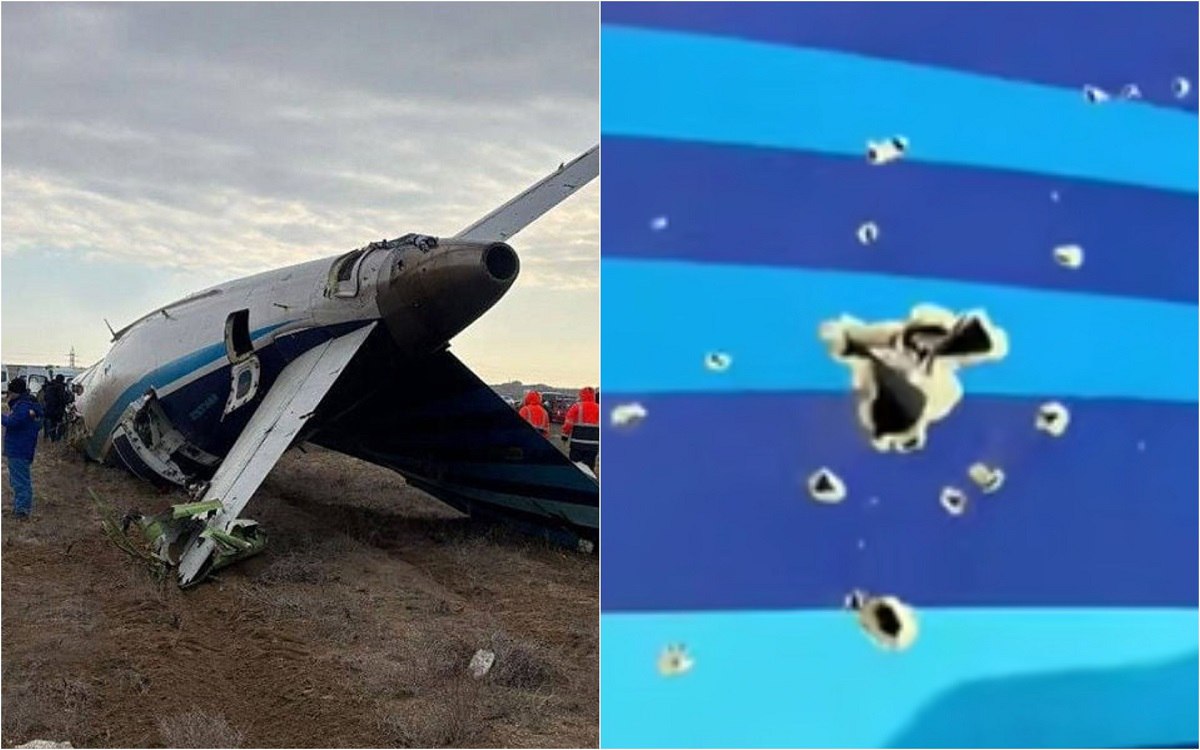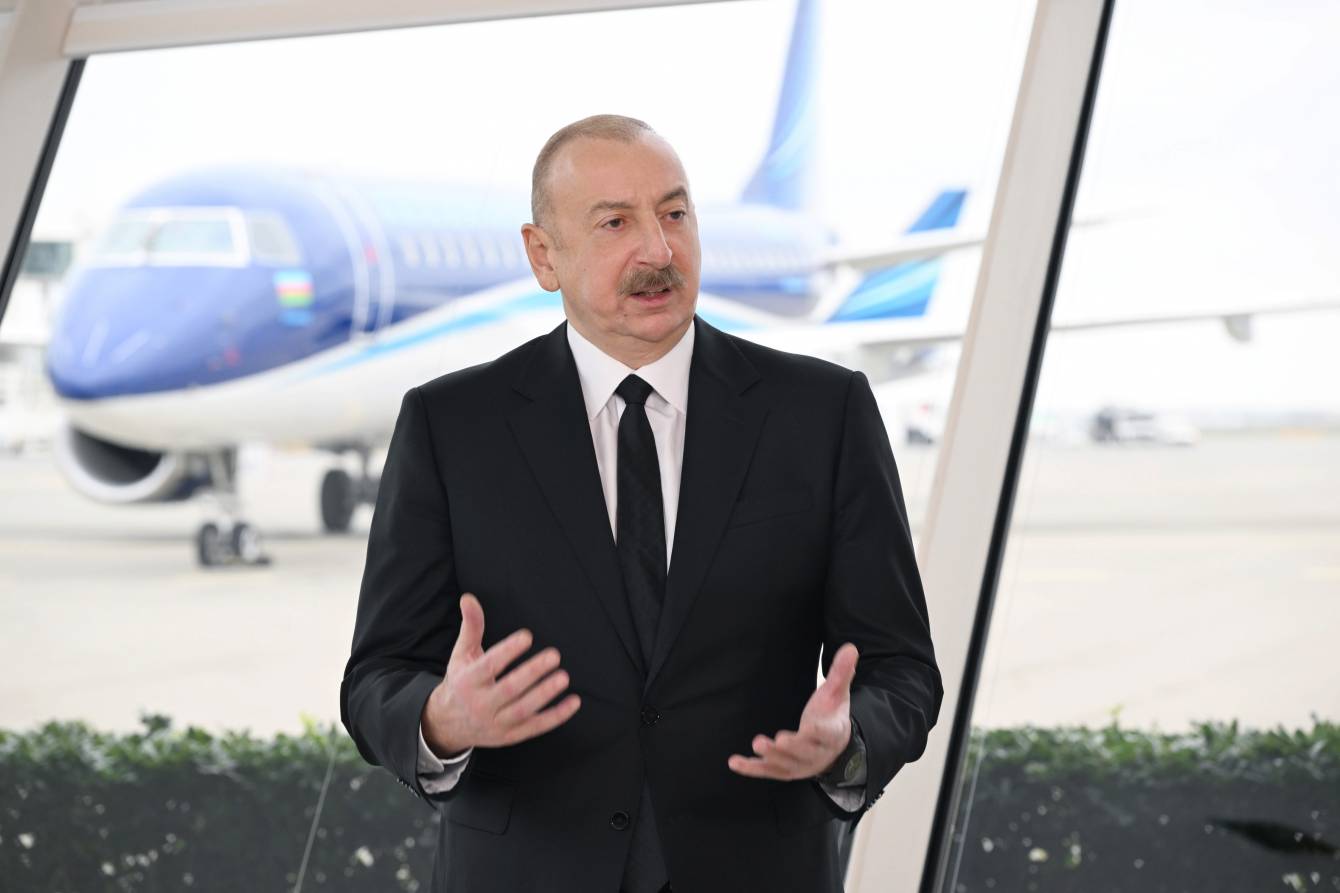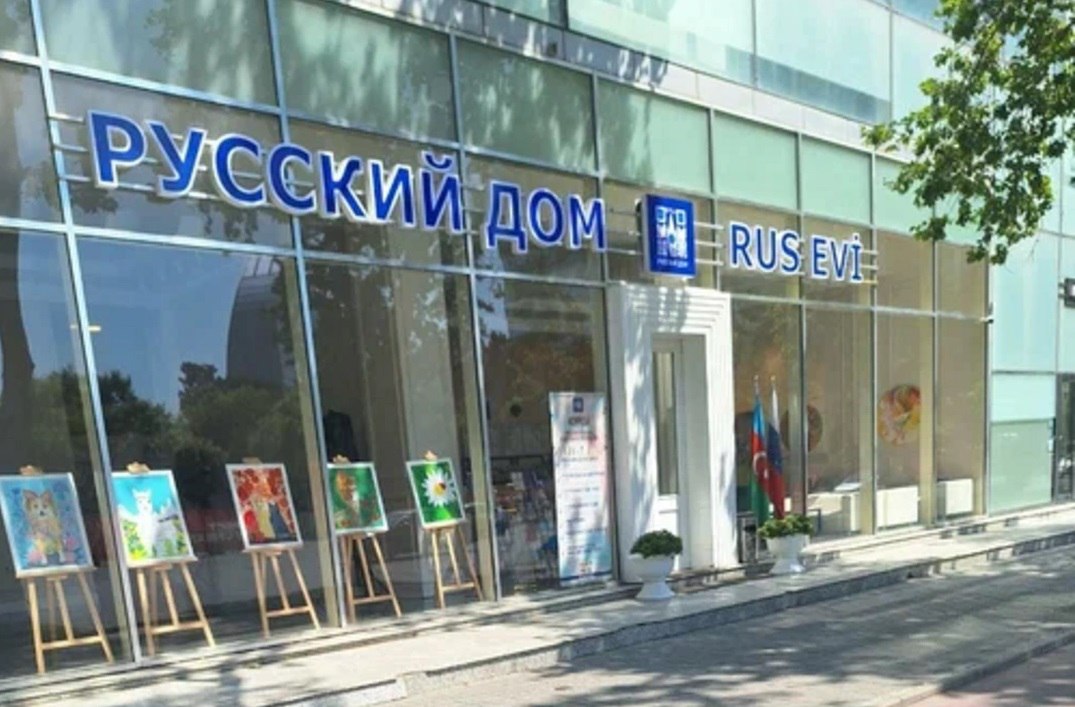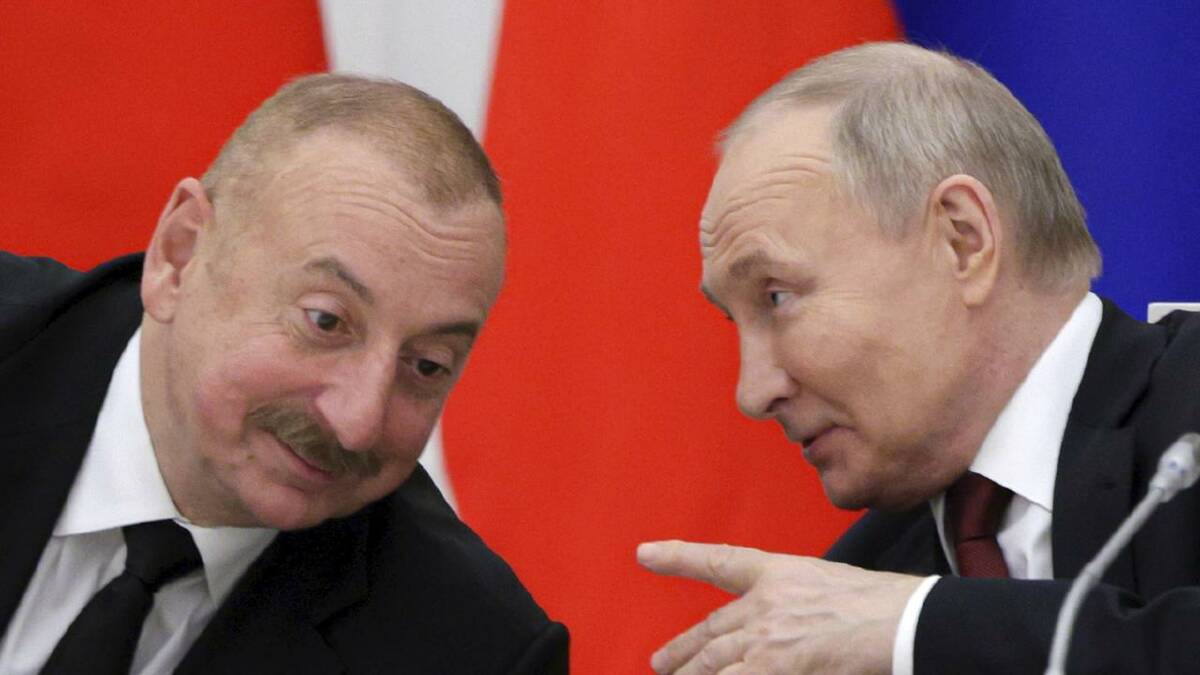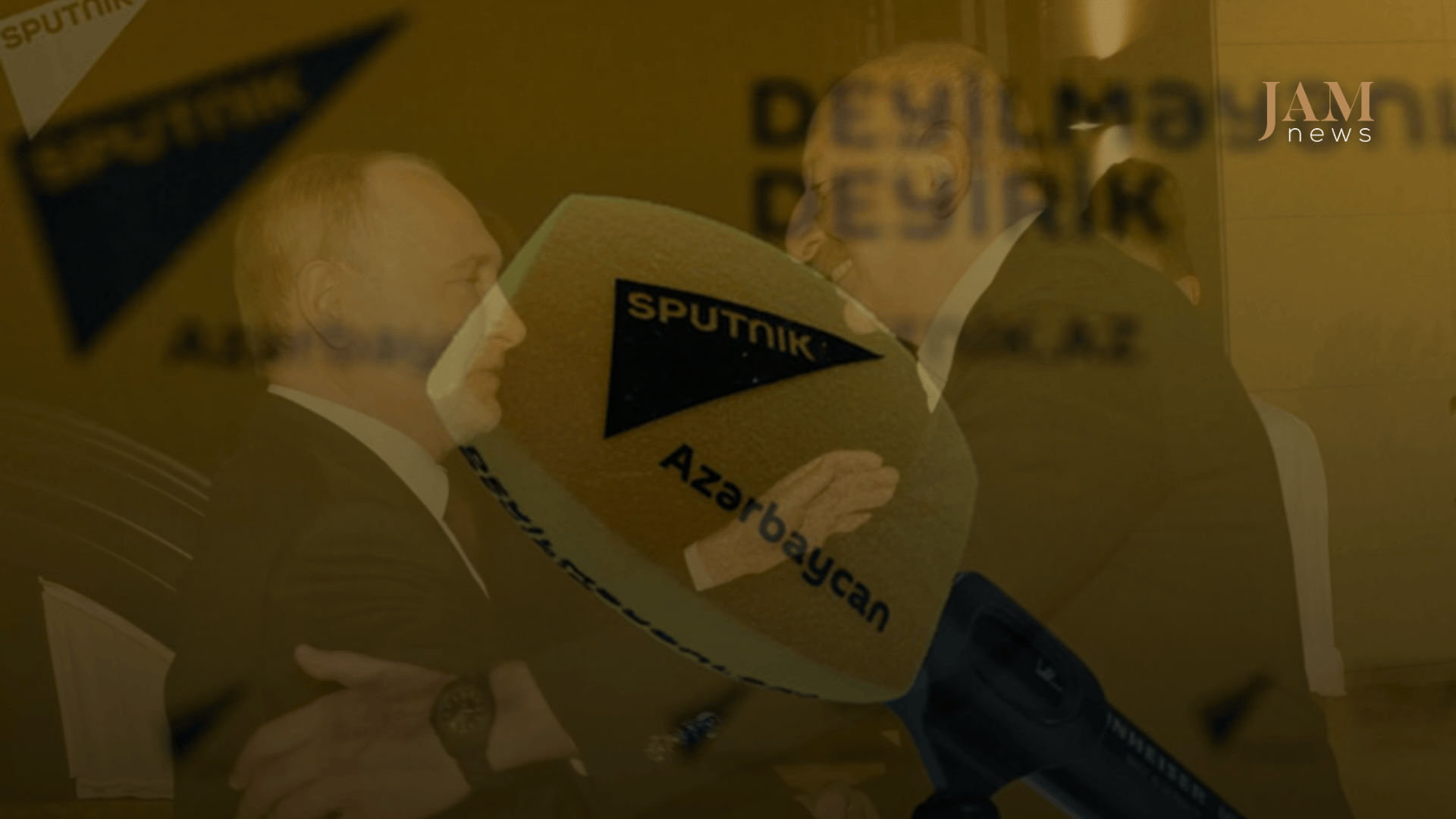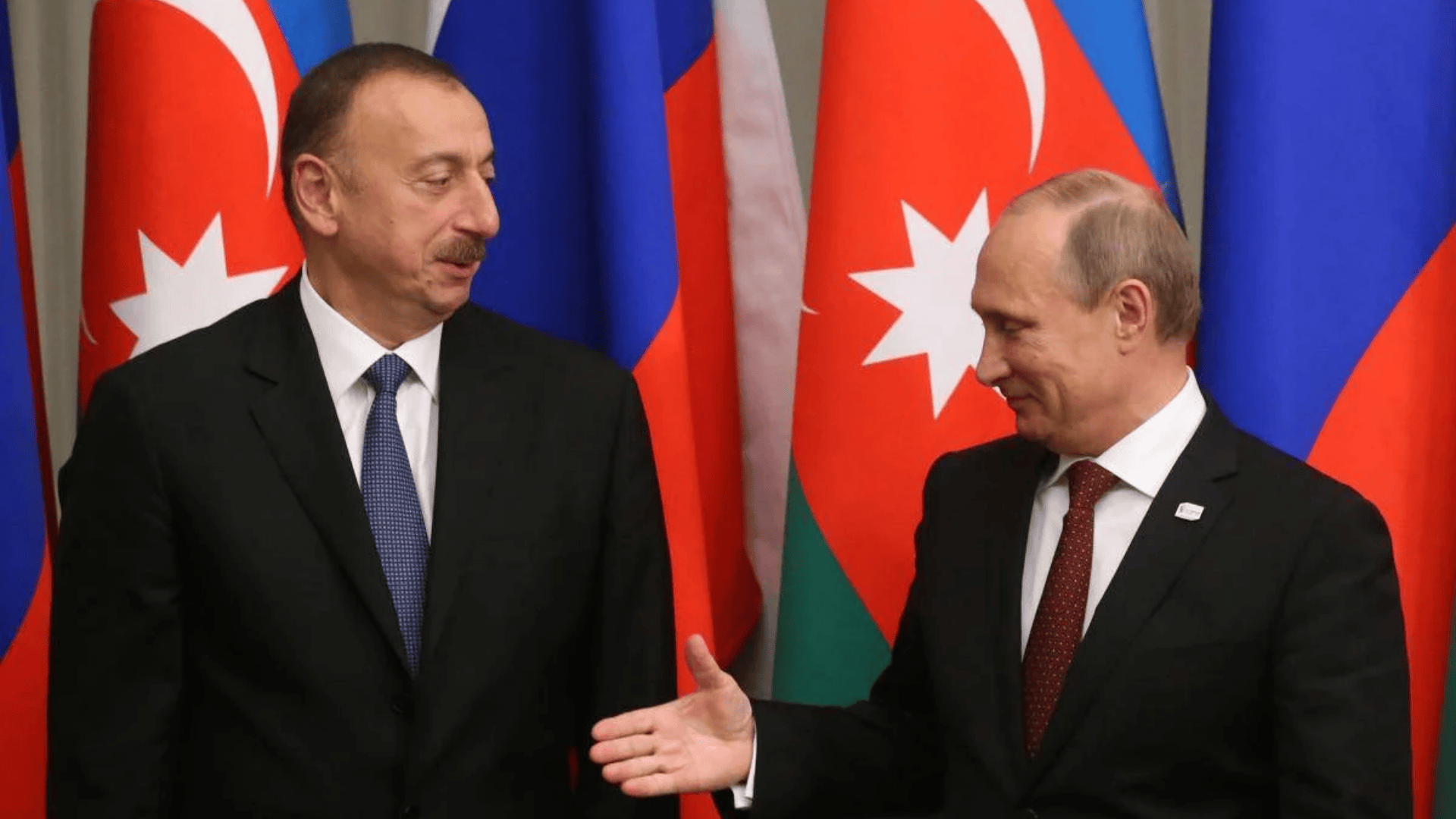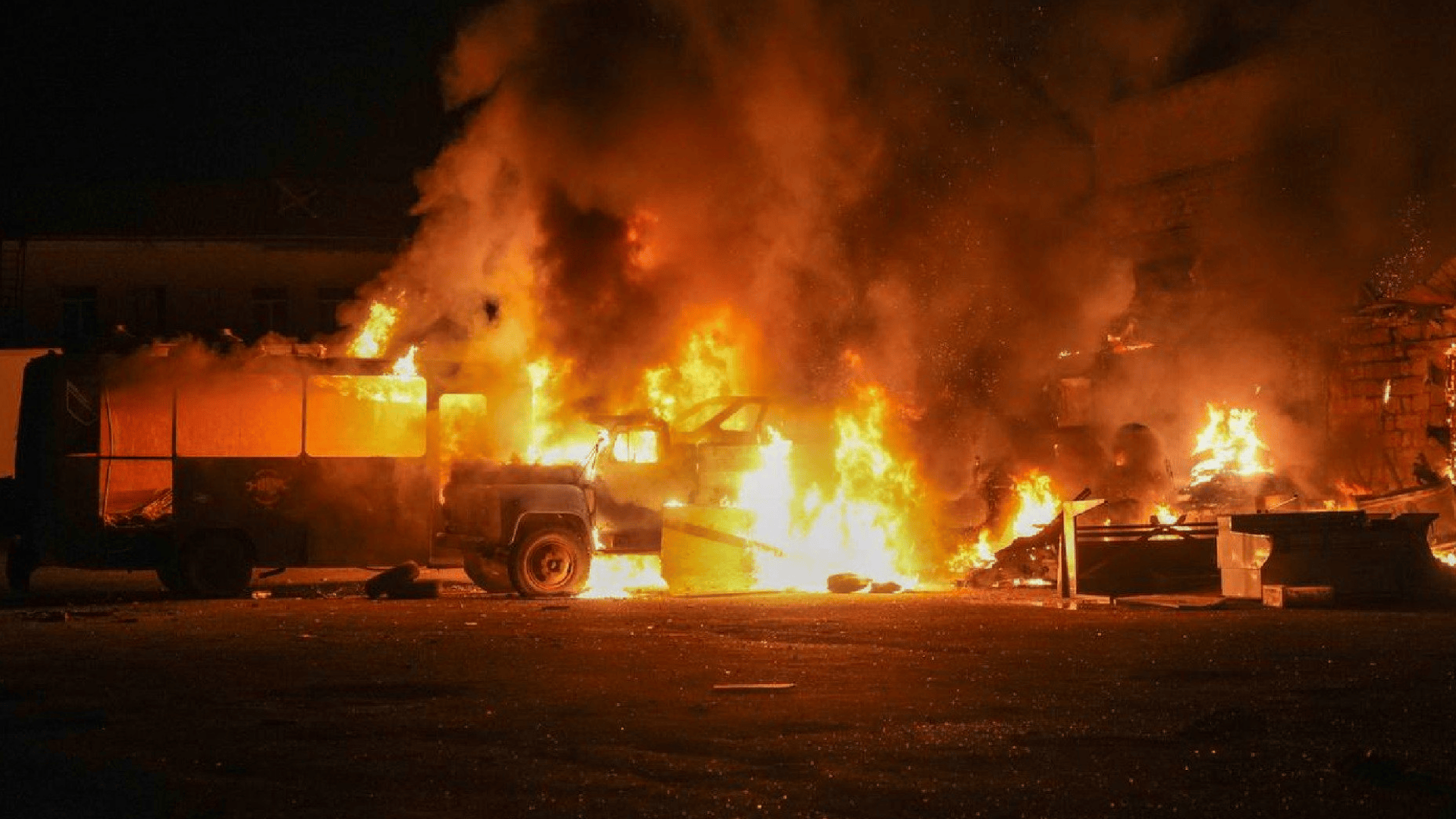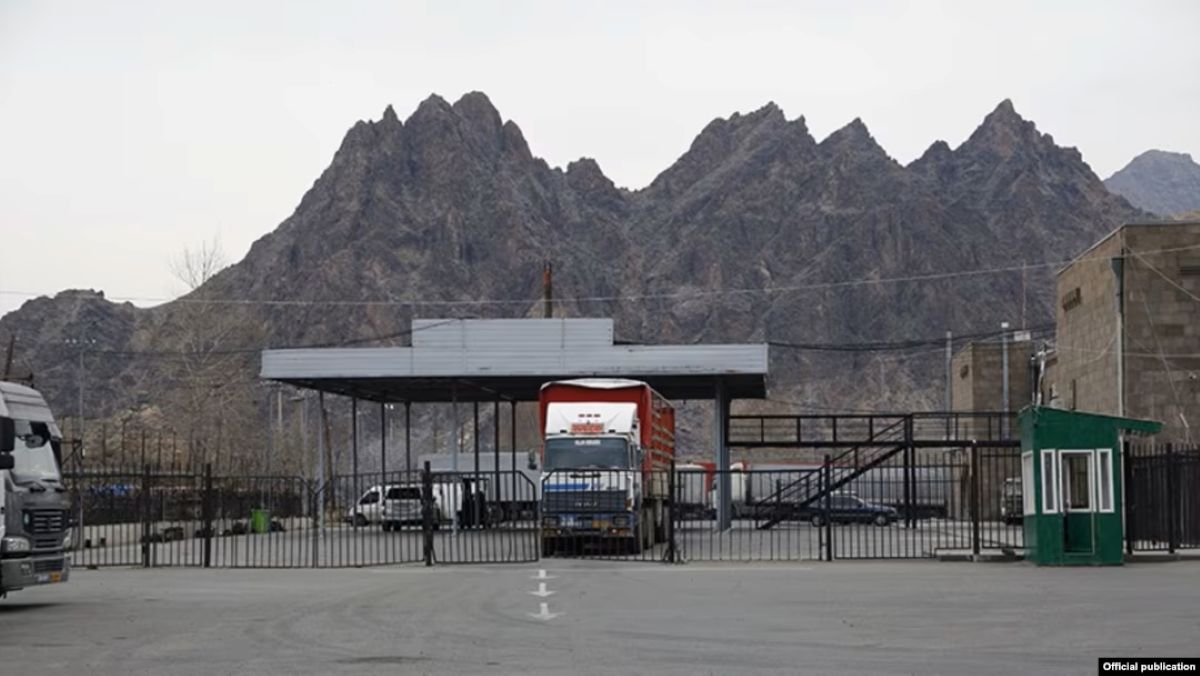Plane crash in Aktau: Russia-Azerbaijan relations and the compensation dispute
Azerbaijani plane crash in Aktau
After the crash of an AZAL Embraer 190 passenger plane in Aktau, relations between Azerbaijan and Russia shifted sharply. Baku’s demands and Moscow’s responses have kept tensions high.
Azerbaijan’s main demand is an official apology from Moscow and state compensation for the damage caused. In recent days, Russia has said compensation payments have already begun, but Baku stressed that these are being made by the airline, not by the Russian government.
The “Aktau plane crash,” with its exchange of claims and diplomatic notes, has become one of the key reasons for the cooling of Azerbaijan–Russia relations. This article sets out the chronology of events from the day of the incident to the present.
The incident and first reports (25–27 December 2024)
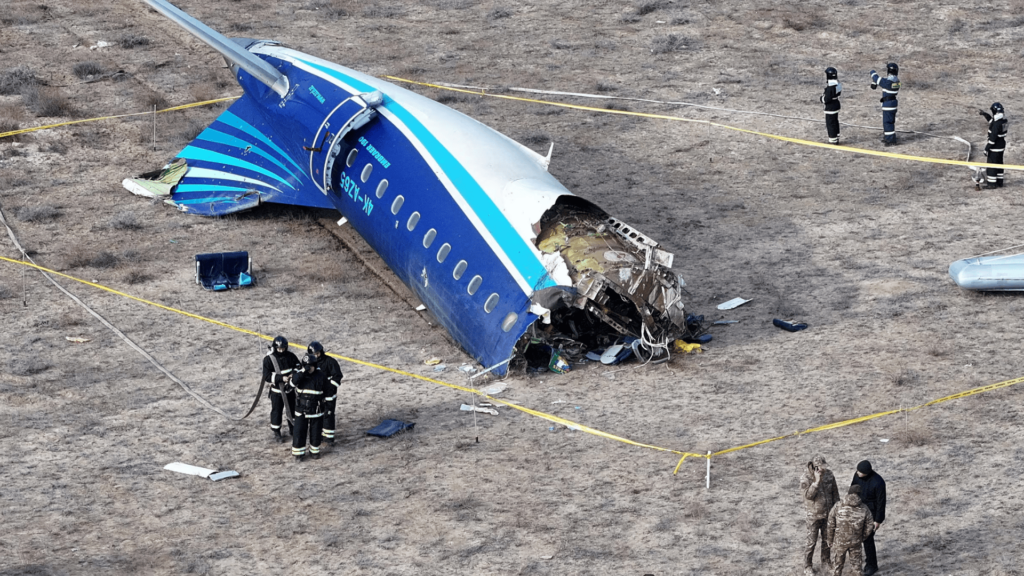
On 25 December 2024, an AZAL Embraer 190 passenger jet flying from Baku to Grozny (Chechnya, Russia) crashed near the city of Aktau in Kazakhstan. After sending an SOS signal over the Caspian Sea, the aircraft attempted an emergency landing at Aktau airport but went down before reaching the runway.
Of the 67 people on board, 38 were killed and 29 survived. Initial reports said the fuselage showed multiple holes and damage, suggesting possible external impact rather than a routine technical failure. Criminal investigations were opened in Azerbaijan, Kazakhstan and Russia.
Emergency services in Kazakhstan immediately launched a rescue operation, and the black boxes were recovered and sent for examination. On 26 December, Azerbaijan declared a national day of mourning.
At the same time, Chechnya’s leadership declared 28 December a day of mourning in the republic. In the first days after the crash, no official cause was given, though Russia’s aviation authority suggested as a preliminary version that the plane may have collided with a flock of birds.
But the scale of the damage — large holes in the fuselage and other signs — cast doubt on that explanation. By 26–27 December, local and international observers were already suggesting the aircraft may have been brought down by a missile strike.
Official statements (28 December 2024 – January 2025)
A few days after the crash, both sides began to set out their positions. On 28 December, Russian president Vladimir Putin phoned Azerbaijan’s president Ilham Aliyev to express condolences to the victims’ families and to apologise for the incident, which he said had occurred in Russian airspace.
Putin called the crash “a tragedy caused by external physical and technical interference in Russian airspace,” and voiced his regret. Soon after, Azerbaijan announced the creation of a commission with international experts and promised a transparent investigation.
On 29 December, president Ilham Aliyev made a firmer statement on the details of the disaster. He said the AZAL plane had been shot down by Russian air defence forces and urged Moscow to acknowledge it officially.
Calling the incident “a terrible tragedy,” Aliyev laid out three main demands to Russia: an official apology and admission of responsibility, punishment of those responsible, and compensation for the families of the dead, the injured, and the airline AZAL for the damage caused. He stressed that the numerous holes in the fuselage, as well as the testimony of surviving crew members and passengers, confirmed the fact of a missile strike against the aircraft.
Russian officials took a cautious line. Kremlin spokesman Dmitry Peskov said it was “inappropriate” to draw any conclusions before the investigation was complete, and avoided commenting on the specific accusations.
Moscow neither confirmed nor denied that the aircraft had been shot down, instead seeking to portray the disaster as an “accident.”
In early January, some media close to Russia suggested the crash had been caused by pilot error, a claim that sparked strong anger in Azerbaijan. Russian state bodies, meanwhile, insisted the investigation was ongoing and that all details would be carefully examined.
Kazakhstan’s government issued a formal statement pledging that the investigation would be conducted objectively and in full compliance with international norms.
Media and independent investigations
After the tragedy, international media and independent sources began publishing key information about the crash.
On 26 December, Reuters reported, citing four sources close to the Azerbaijani investigation, that the plane had been downed by a Russian Pantsir-S1 air defence system.
The agency said that as the aircraft approached Grozny its communications were disrupted by powerful electronic jamming, after which it was mistakenly targeted and shot down by Russian air defences.
Reuters also reported that US and Canadian officials had confirmed preliminary data pointing to a high probability that the plane had been struck by a Russian missile. Baku did not deny these reports, but stressed that the investigation was still underway and official confirmation would come later.
The Times and other western outlets published expert assessments of videos that surfaced after the crash. They concluded that the loss of control during the attempted emergency landing was caused by damage to the hydraulic systems in the fuselage and tail section.
Experts noted that the large holes in the tail and wings were caused by missile fragments, which disabled three parallel hydraulic lines. This analysis reinforced the likelihood that the aircraft had been brought down by an external missile strike.
“At that moment a missile was mistakenly fired at the AZAL plane”
Euronews, citing sources in the Azerbaijani government, released an exclusive report. It said that on the morning of 25 December, during a drone attack near Grozny, Russian air defence systems were activated, and it was then that a missile was mistakenly launched at the AZAL aircraft.
According to Euronews, the missile exploded close to the plane, injuring passengers and crew. The damaged aircraft was then denied permission to land at Russian airports and was redirected across the Caspian to Aktau. Although these details were later officially confirmed, at the time it was the Euronews report that spread widely through Azerbaijani media.
The investigation into the crash was formally led by Kazakhstan. Under the Chicago Convention, since the incident occurred on its territory, the primary role in the inquiry fell to Kazakh authorities.
On 4 February, Kazakhstan’s Ministry of Transport published a preliminary report. It noted that the initial inspection of the wreckage revealed multiple holes of different shapes and sizes in the tail section, the vertical and horizontal stabilisers, the left engine and the wing.
Some of the holes were described as having rectangular edges. In addition, foreign metallic fragments were found inside the aircraft structure at the crash site, with further tests commissioned to determine their origin and type.
While the report did not state a final cause of the disaster, it stressed that the plane had not collided with birds and that no explosive devices had gone off on board. This further strengthened the version that the aircraft had been struck by an external missile.
Two days after the crash, on 27 December, Russia’s Federal Air Transport Agency (Rosaviatsiya) admitted that Russian air defence systems had been activated while the AZAL plane was in the skies above Grozny.
On 24 January 2025, Azerbaijani media, citing sources in Russia’s Investigative Committee, reported new details. According to those reports, the Russian investigation confirmed that the aircraft had indeed been hit by a Pantsir-S1 missile system. The identities of both the crew who launched the missile and the officials who gave the order were allegedly established.
It was claimed that this missile system had been redeployed from Syria to Chechnya and, during an attempt to repel drone attacks over Grozny, mistakenly targeted the civilian plane. Although Moscow did not comment on these claims, they reinforced public opinion in Azerbaijan about the causes of the disaster and were seen as further evidence of Russia’s responsibility.
Legal and political positions of Russia and Azerbaijan
On the legal and political assessment, Baku and Moscow diverged sharply.
Azerbaijani officials and the public regarded the destruction of a civilian aircraft by a state’s armed forces as a grave breach of international law. Deputies in the Milli Majlis pointed out that Article 3 bis of the 1944 Chicago Convention strictly prohibits the use of weapons against civilian aircraft. Even in cases of airspace violations, only forced landing is permitted — not the destruction of the plane.
Since the AZAL aircraft was flying on an approved route and not breaking any rules, its destruction was, they argued, a clear violation of this norm. Baku also reminded that the 1971 Montreal Convention classifies the deliberate destruction of civilian aircraft as a crime, while Article 2(4) of the UN Charter prohibits states from using force. From this perspective, the downing of the AZAL plane constituted an unlawful use of force, engaging state responsibility, and could not be dismissed as an “ordinary air crash.”
Russian officials, by contrast, took an evasive stance on responsibility. Although president Vladimir Putin expressed condolences and apologised, he stopped short of acknowledging direct Russian fault, referring instead to an “unfortunate incident.”
Moscow’s representatives stressed that the investigation was still ongoing, while simultaneously floating alternative explanations — from a bird strike to pilot error.
Ilham Aliyev: “We know what happened, and we can prove it”
Azerbaijan firmly rejected Russia’s explanations. Political dialogue between the two countries grew increasingly tense as Baku openly declared that the behaviour of Russian officials after the tragedy — and their refusal to accept responsibility — had dealt a serious blow to bilateral relations.
Azerbaijan also began to take its legal claims to the international arena. In the first half of 2025, president Ilham Aliyev repeatedly said that Baku had waited patiently for steps from Moscow, but “so far there has been no response from Russian officials.”
In July, Aliyev stated openly that Azerbaijan was preparing to file a case in an international court to secure legal recognition of Russia’s responsibility and formalise its demand for compensation. “We know exactly what happened, and we can prove it; Russian officials also know what happened,” the president said. Yet, he added, Russia had failed to fulfil its obligations.
Aliyev stressed that Azerbaijan’s demands were entirely legitimate and consistent with the principles of good neighbourliness: Moscow should recognise its responsibility, even if the tragedy resulted from a mistake; punish the soldiers who shot down the plane; pay compensation to the families of the dead and the injured; and reimburse AZAL for the destroyed aircraft.
Baku also pointed to the precedent of flight MH17 (the Malaysia Airlines plane shot down over Ukraine in 2014) as an important legal reference. Unlike in that case, Azerbaijan argued, Russia’s role in the AZAL incident was even more direct, making its claims particularly strong.
Moscow, by contrast, built its political and legal position on different grounds.
Above all, Russia sought to avoid framing the case as an inter-state dispute, presenting it instead as a commercial aviation accident. Under Article 17 of the 1999 Montreal Convention, liability in cases of death or injury to passengers in civil aviation incidents rests with the airline (in this case AZAL), which must make the required insurance payments. Russian officials argued that once victims received insurance payouts, the matter should be considered closed.
But Azerbaijan strongly rejected that interpretation. The lawyers explained that Article 21 of the Montreal Convention sets out only limited airline liability, and in circumstances beyond its control the carrier cannot be held fully responsible. In other words, if a civilian aircraft is shot down through the use of military force, the primary responsibility lies with the state (in this case Russia), and insurance payouts alone are far from sufficient.
On this basis, Baku continues to stress state responsibility and the need for compensation in the international arena, while Moscow, in turn, seeks to confine the issue to insurance payments by AZAL and avoid further obligations.
New developments (Russian foreign ministry statement and insurance payouts)
In the months following the crash, tensions between Russia and Azerbaijan not only failed to ease but deepened. By spring and summer 2025, mutual accusations and mistrust had grown more pronounced. The situation was further aggravated by the detention of groups of Russian citizens of Azerbaijani origin in Azerbaijan and reports of pressure on Azerbaijani migrants in Russia.
Baku maintained that the real root of deteriorating relations lay in the Aktau air disaster and in Moscow’s behaviour afterwards. Against this backdrop, the Kremlin sought to defend its position on the international stage.
Russia: “Payments have been made since February 2025”
In early September, Russia’s foreign ministry issued a special statement denying claims in foreign media and blogs that Moscow was avoiding compensation. The ministry said that most insurance claims by families of the dead and injured passengers had already been settled.
According to the statement, the Russian insurance company AlfaStrakhovanie began payments in February 2025. AZAL received full compensation for the destroyed aircraft — 1.003bn roubles (around $12.3m). Claims for 46 of the 62 passengers who were killed or injured had also been resolved, with payouts totalling 358.4m roubles (about $4.4m). The ministry added that work was continuing on the remaining cases to agree the amounts.
By releasing this information, Moscow condemned what it called the politicisation of the issue and urged people not to trust “false claims aimed at provoking an emotional reaction.”
Azerbaijan: “The compensation we demand concerns Russia’s responsibility”
Azerbaijan’s response was swift. On 5 September, foreign ministry spokesperson Aykhan Hajizade called the Russian statement “surprising and misleading.” He stressed that the payments Moscow referred to were made under AZAL’s insurance policy — obligations that rest with the airline itself.
“To equate these payments with the compensation that the government of Azerbaijan is demanding from Russia is incorrect,” Hajizade said.
The ministry reminded that the sums in question were insurance payouts covering only the legal relationship between the airline and its passengers. By contrast, the compensation demanded by Azerbaijan is directly linked to the responsibility of the Russian government — and that issue remains unresolved.
Hajizade added that the crash and Moscow’s subsequent stance were the real causes of the cooling in bilateral relations. Ethnic tensions have added to the strain, including the beating and killing of two Azerbaijani brothers in Yekaterinburg.
As of September 2025, Moscow continues to avoid directly acknowledging that the plane was shot down and insists on presenting the matter as one settled by insurance payments. Baku, however, deems this approach unacceptable, arguing that portraying insurance payouts as state compensation misleads the public. It continues to demand that Russia recognise responsibility at the state level.
The exchange of diplomatic notes and mutual accusations in the media between the two countries has carried on into September.










